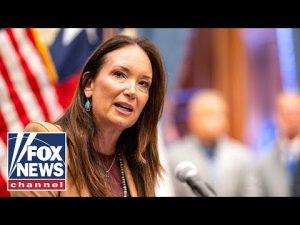In a world where political campaigns seem to blur the lines between fundraising and personal enrichment, recent revelations have raised eyebrows. It appears that the usual donor money, the lifeblood of political campaigns, is being channeled into the pockets of a select few rather than serving the greater cause. Small donors who chip in their hard-earned dollars in hopes of supporting their political ideals might be disheartened to discover that these contributions are often funneled into salaries and productions with questionable justification. This raises the question of accountability and responsibility within political circles, especially among Democrats.
The discourse on political consultancy fees parallels the salary cap debates in professional sports, like Major League Baseball. It’s a valid comparison when considering the exorbitant sums being paid to Democratic campaign consultants. While donors expect their contributions to fund political change and advocacy, the reality is often quite different. Individuals who were led to believe in a brighter future under leadership changes are faced with disillusionment when they find their investments have been squandered. The past financial debacles of overspending and accruing significant debts are indicative of a deeper issue within Democratic fund management strategies.
The discontent among some donors is palpable. They witness the mismanagement of resources, like the enormous sums spent on failed campaigns, while still being continuously pursued for further donations. The question arises: why would anyone continue investing in a system that appears broken? Observers note that prominent figures in Hollywood and other spheres seemingly support these initiatives not solely for ideological reasons but due to the financial opportunities they afford. This intertwining of money and politics erodes public trust and propagates skepticism towards the sincerity of such endorsements.
The political landscape is further clouded by celebrity figures whose involvement often complicates matters. Take Oprah, for instance, whose engagement during campaign times has been criticized as opportunistic. The notion that extravagant production costs can be justified as campaign expenses raises eyebrows. In many professional fields, receiving payment directly from a campaign would constitute a conflict of interest. Yet, it seems the rules bend for those in the upper echelons of fame and influence, leading to a cycle where politics and entertainment become dangerously interconnected.
Ultimately, this conversation isn’t just about Democrats or Republicans; it’s about the integrity of political funding. When donor money is handled carelessly, it poses a risk to the democratic process itself. It gives rise to a political culture where transparency and accountability are sidelined in favor of personal gain. For the voting public, for whom these campaigns theoretically advocate, there’s a need for a return to the fundamental principles of prudent financial management and authenticity. Without these, the divide between political elites and everyday citizens will only continue to widen.







